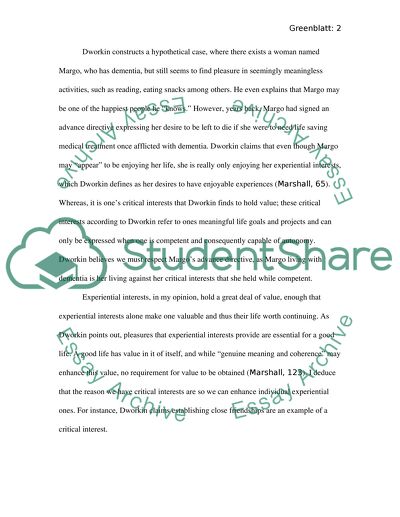Cite this document
(“Precedent vs. Contemporaneous Autonomy in Regard to Advance Directives Essay”, n.d.)
Retrieved from https://studentshare.org/philosophy/1496953-precedent-vs-contemporaneous-autonomy-in-regard-to-advance-directives
Retrieved from https://studentshare.org/philosophy/1496953-precedent-vs-contemporaneous-autonomy-in-regard-to-advance-directives
(Precedent Vs. Contemporaneous Autonomy in Regard to Advance Directives Essay)
https://studentshare.org/philosophy/1496953-precedent-vs-contemporaneous-autonomy-in-regard-to-advance-directives.
https://studentshare.org/philosophy/1496953-precedent-vs-contemporaneous-autonomy-in-regard-to-advance-directives.
“Precedent Vs. Contemporaneous Autonomy in Regard to Advance Directives Essay”, n.d. https://studentshare.org/philosophy/1496953-precedent-vs-contemporaneous-autonomy-in-regard-to-advance-directives.


